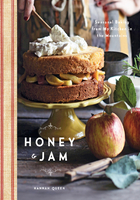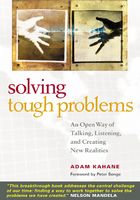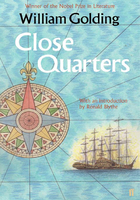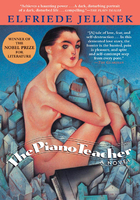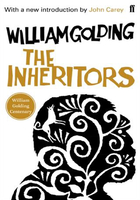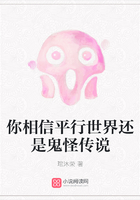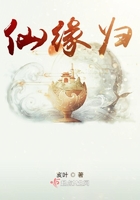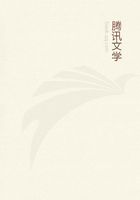The writing of memoirs, I find, is a strange and tricky business.
Can you tell the truth? Does memory, blurred and disjointed by the passage of time and fed by the imagination, lead you to recount more fiction than fact? William Allen White was afraid it did. "This Autobiography," he warned in the preface to his memoirs, "in spite of all the pains I have taken and the research I have put into it, is necessarily fiction." The reader, he said, should not "confuse this story with reality. For God only knows the truth." White was merely trying, he concluded, "to set down some facts which seem real and true to me."
That is all I have attempted to do in this memoir of a life and the times. I, too, have done years of research in a considerable pile of personal papers, though some were lost in the war and in travel, for a foreign correspondent led a nomadic life, living out of a suitcase. And I have been haunted and humbled by the warnings of poets, philosophers, and memorialists whose abilities and attainments were far above mine. Montaigne thought man was simply incapable of attaining truth because he "was the servant of customs, prejudices, self-interest and fanaticism.…The bane of man is the illusion that he has the certainty of his knowledge."
Isadora Duncan, who lived such a full and tragic life, used to talk to me about her memoirs while she was writing them in Paris. "How can we write the truth about ourselves?" she would ask. "Do we even know it?" Emily Dickinson thought that "truth is so rare, it's delightful to tell it." Delightful maybe, but difficult.
What is truth? To Santayana "truth is a dream unless my dream is true." And André Malraux, in writing his memoirs-or "anti-memoirs," as he called them-speculated that "the truth about a man is first of all what he hides," but he differentiated between what a man hides and what he ignores in himself. The two are not the same. Stendhal wrote one book after another about himself in an effort to understand who and what he was, but the search for the truth eluded him. "What manner of man am I?" he finally asked, and admitted: "In truth, I haven't the faintest idea."
There are other problems in writing memoirs. They have to do with the past and with time. "The past is never dead," wrote Faulkner. "It's not even past." You cannot ruminate about the past and write about it without transforming it. Immediately the imagination enters into play until it is impossible to separate memory from imagination. Or to sort out time. Einstein, for whom the conception of time was so important in his theory of relativity, and in mathematics and physics generally, thought it was impossible to sort it out. "The separation between past, present and future," he said, "has only the meaning of an illusion, albeit a tenacious one."
Rousseau, whose Confessions is probably the greatest and the most self-searing of all the autobiographies, thought first of writing simply a portrait of himself. He spent twelve years preparing to write it, assembling notes and mulling over notebooks, letters, and other material. In the end he rejected the idea of doing a portrait, not only because he thought it would be static but because it would present a final judgment of himself made late in life. Time would play its tricks. Instead, he decided to relate "all that has happened to me, all that I've done, all that I've thought, all that I've felt.…I cannot be wrong about what I've felt."
But he deceives himself. Like every other who writes of his life, he transforms it by the writing. "That is why," wrote Marcel Raymond, the editor of the Pleiade French edition of Confessions, "the history of his soul, which he promised us, becomes, without his knowing it, the legend or the myth of his soul."
***
An observation or two about my own view of life, as a background to these memoirs:
Only rarely have I paused amid the trivia of living, which makes up so much of our existence, and out of which comes the setbacks, the triumphs, the sorrows, and the rare moments of happiness, to consider how puny and unimportant we all are, how puny, in fact, is our planet. Even the solar system, of which the Earth is a negligible part, is but a dot in the infinite space of the universe. The limited space and time that we can comprehend are nothing in the incalculable extent and age of inorganic nature. Who can say, then, that the purpose of the universe, if it has a purpose, has been to create man? Who can even say that there are not billions of other planets on which there is some kind of human life, perhaps much further advanced than ours, or at least more sane, meaningful, and peaceful?
Every person's life is of importance to himself, of course; it is the only one he has and knows. But in the universe of infinite space and time, it is insignificant. "Qu'est-ce qu'un homme dans l'infini?" asked Pascal. Nothing. Perhaps Carl Becker, the historian, and one of the most civilized men I ever knew, grasped best our piddling place in the infinite.
Man [he wrote] is but a foundling in the cosmos, abandoned by the forces that created him. Unparented, unassisted and undirected by omniscient or benevolent authority, he must fend for himself, and with the aid of his own limited intelligence find his way about in an indifferent universe.
And in a rather savage world! The longer I lived and the more I observed, the clearer it became to me that man had progressed very little beyond his earlier savage state. After twenty million years or so of human life on this Earth, the lot of most men and women is, as Hobbes said, "nasty, brutish, and short." Civilization is a thin veneer. It is so easily and continually eroded or cracked, leaving human beings exposed for what they are: savages.
What good three thousand years of so-called civilization, of religion, philosophy, and education, when right up to the 1980s, as this was being written, men go on torturing, killing, and repressing their fellowmen? In fact, was there not a retrogression here? In my own brief time we vastly multiplied our capacity to kill and destroy. With the advent of the bomber, we not only slaughtered soldiers but also innocent women and children far behind the lines of battle.
We could see in our own country as late as the 1960s and 1970s how good Christian and Jewish men, the pillars of our society, when they acceded to political and military power, could sit calmly and coolly in their air-conditioned offices in Washington and cold-bloodedly, without a qualm or a moral quiver, plan and order the massacre by bombing of hundreds of thousands of men, women, and children and the destruction of their homes, farms, churches, schools, and hospitals in a faraway Asian land of poor peasants who had never threatened us in the slightest, who were incapable of it. Almost as savage was the acceptance by most of us citizens of such barbarism, until, toward the end, our slumbering-or should one say, cowardly?-consciences were aroused.
Sometimes it has seemed to me that man's main accomplishment has been to tear down, rob, pollute, kill. First, his earth. Then his fellowmen. In recent years has come our final, triumphal achievement: a nuclear contraption and a guided missile to carry it, works of such incredible complexity that only our handful of geniuses could create them, works that can blow up our planet in a jiffy, snuffing out life for good. Can, and probably will, given the folly of those who rule us and who have the power to decide.
In such a world what meaning can there be in life, what purpose? All my years I have searched, like so many others, for some meaning. Seldom have I got beyond asking the questions. What is life? For what purpose? How did it originate? Where did we come from? Where are we going? Does death end it all? And what is death? The door to eternity? To nothingness? Malraux came to believe that a man "finds an image of himself in the questions he poses," that he "shows himself more truthfully by the profoundness of his questions than by his answers." As Gertrude Stein lay dying in the July heat of 1946 in Paris she mumbled to someone by her bedside: "What is the answer?" And when there was no answer she said: "Then what is the question?"
I never was able to find many answers myself. There have been some, thought up by others, though none very satisfying to me. The gloomy Schopenhauer found that life was merely the passage from being to nothingness. Sophocles, surprisingly, at the end of a long, full life in the golden age of Greece, concluded that it would have been better for man not to have been born. Sophocles had won all of life's prizes. He had captured the drama awards, been acclaimed Greece's greatest playwright and poet, was handsome, rich, and successful, and had lived in good health and vigorous mind to ninety. Yet he could write:
Never to have lived is best, ancient writers say:
Never to have drawn the breath of life, never to have looked into the eye of day.
Solon agreed. "Call no man happy," he said, "until he is dead."
Did Solon think happiness began in the thereafter? That is a question we all have asked. The religion of the Greeks, like all other religions, answered that it did. Plato thought that heaven, the Elysian Fields, was the reward for all the injustices and unhappiness on Earth. But there were skeptics. Epicurus, for one. "There is no immortality," he was sure, "and therefore death for us is not an evil; it simply does not concern us: while we exist there is no death, and when death comes we are gone."
Without subscribing fully to his view, even after I lost my faith in the Christian certainties of the hereafter, I have always liked the way Epicurus put it.
Faith in immortality was born of the greed of unsatisfied people who make unwise use of the time that nature has allotted us. But the wise man finds his life span sufficient to complete the full circle of attainable pleasures, and when the time of death comes, he will leave the table, satisfied, freeing a place for other guests. For the wise man one human life is sufficient, and a stupid man will not know what to do with eternity.
George Eliot was equally skeptical. For her, God was unknowable and immortality unthinkable.
Such, in part, have been the meanderings of my own thoughts as they mixed with those of others and were influenced by them. They will creep in and color, no doubt, this narrative of one life and of the times as the world moved through our momentous twentieth century. That brief whiff of time, as time goes, that has comprised my own span, encompassed more changes, I believe, than the previous thousand years. It has been an interesting experience to have been born in the horse-and-buggy age and to have survived into the nuclear era.
Luck and the nature of my job put me in certain places at certain times where some of the main currents of our century were raging. This gave me an opportunity to see at first hand, and to get the feel of, what was happening, and why. To say that "there is no substitute for experience" may be indulging in a stale cliché, but it has much truth in it. Rilke thought that to be a poet "Mann muss viele Erlebnisse ertragen"-one has to have a lot of experience, or go through a lot. It is true for all writers and for all those who wish to have a full life.
I love books. They connect you with the past and the present, with original minds and noble spirits, with what living has been and meant to others. They instruct, inspire, shake you up, make you laugh and weep, think and dream. But while they do enhance experience, they are not a substitute for it.
I've always felt it was helpful in my understanding of our country to have been born in Chicago and to have begun to grow up there shortly after the turn of the century. Not that there were not plenty of other equally interesting and certainly more pleasant places to be born in: New York, say, or Cambridge or San Francisco. They were more civilized, probably. Still, it was in Chicago, I think, around the turn of the century, that one could grasp best what had become of America and where it was going. All the boisterousness and the raucousness, the enormous drive to build, to accumulate riches and power, all the ugliness, the meanness, the greed, the corruption of the raw, growing country was exemplified in windy Chicago. Yet some of the poetry of the land and the city were there too, in the beauty of the lake site, of slender buildings soaring to the blue sky along the water, and the quest for art and learning. You can feel it all in the poetry of Chicago's Carl Sandburg. There, and later in Iowa, I grew up with the Midwest in my blood. The Midwest, too, was not the only good place to begin life in. But it gave us something, for better or worse, that no other region had. It was the heartland. It fed the nation, mined many of its minerals, manufactured most of its goods. More than any other section, I think, it shaped the American nation and whatever civilization we have. My roots were there.
Later when I yanked them up-but not all of them, that would have been beyond me-and went abroad at twenty-one to live and work in Europe and Asia, the fortunes of my job set me down in places where some of the principal events that were shaping our world were transpiring: in India in the early thirties during the revolution for independence that Gandhi was leading; in Paris and London during the twenties and thirties when Europe's two greatest democracies were inexplicably sliding downhill; in Rome when that sawdust Caesar Benito Mussolini, after a shaky start, was fastening Fascism on a civilized people and when the Vatican was beginning to stir, to accommodate itself to the twentieth century, and the Pope was giving up the role of the "prisoner" of Rome; in Berlin during the rise and fall of Adolf Hitler and of the barbarian Third Reich; and finally in the Second World War, which Hitler inflicted on a suffering world.
Without these direct, immediate experiences I never could have gained at least some understanding of, much less have got the feel of, what happened-and perhaps why-in that troubled time. They helped later in the writing of some history.
Throughout the mature years of my life, and through the writing of these memoirs, something that Leon Trotsky wrote of our times and something else that Henry James wrote about being an American have flickered through my mind. "Anyone desiring a quiet life," Trotsky wrote shortly before he was hacked to death in Mexico by agents of Stalin, "has done badly to be born in the Twentieth Century." As for crotchety old James: "It's a complex fate," said he, "being an American." Complex or not, it was an interesting fate to be an American in the twentieth century. I am glad it was mine.

